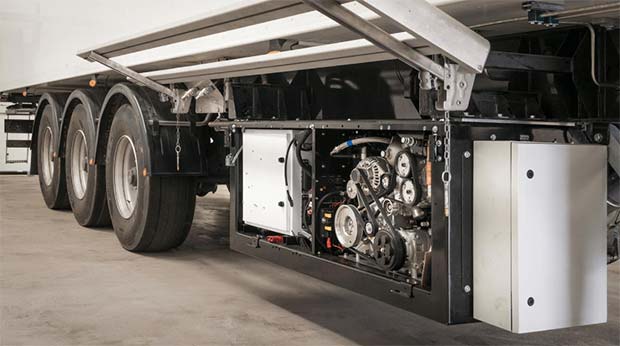For many years now, the battle against air pollution has been one of the leading environmental fights. It’s a major challenge to defeat air pollution, though, and many experts are finding the battle is a nigh-impossible one to win. One of the best ways to win any argument, though, is with a proven technological solution – and that might just be around the corner.
Indeed, engines that are powered using liquid nitrogen might be a much cleaner, cost-effective way to bring an end to the problem. According to a trial carried out in Leeds, UK the Leeds City Council has backed the idea for these engines to come into production.
Rolled out on a wide basis across Leeds, the city found that as much as 19 tons could be taken off the air pollution scale across the year. Dearman are the company behind the engines and they’ve created engines based on the coolant systems used within the transport industry to keep things like frozen foods cold whilst en route.
However, these refrigeration units are pulled using diesel engines that can produce as much as six times the amount of pollution as normal. With the Dearman engine, though, that would produce an improvement of up to 80% of the greenhouse gases compared to a diesel engine.
According to Scott Mac Meekin, the CEO of Dearman: “We are pleased to have led this trial with a leading supplier of ice products who should be commended for reviewing its local environmental footprint.
“Leeds City Council has rightly identified second diesel engines on delivery lorries as a particular source of air pollution.
“This trial has given the council the evidence it needs to encourage government to take real action and support a switch to zero-emission alternatives instead.”
Instant action needed
The Executive Member for Environment and Sustainability on Leeds City Council, James Lewis, said: “Leeds City Council is committed to tackling air pollution in order to protect the health of everyone in Leeds.
“New technologies will play a key role in enabling the council to reduce air pollution in the shortest possible timescale. Because of this, we are actively involved in several innovative trials just like this one.
“We will now work with the government to encourage the rollout of this new technology so that residents in Leeds, and across the country, can enjoy the benefits of cleaner air.”
The trial itself was backed with a £150,000 grant that was provided to Leeds City Council y the Department for Environment, Food and Rural Areas. The report suggested that while this is looking very much like a positive move for the government, the fear is that the permitted use of ‘red diesel’ – subsidized by the government – will make uptake of this slower than is needed.
Trail data will be used to help show the rest of the nation evidence that pollution could be vastly reduced with the right kind of engines. More trials will come elsewhere prior to any further action being taken.
